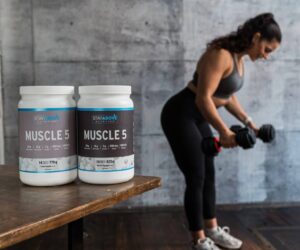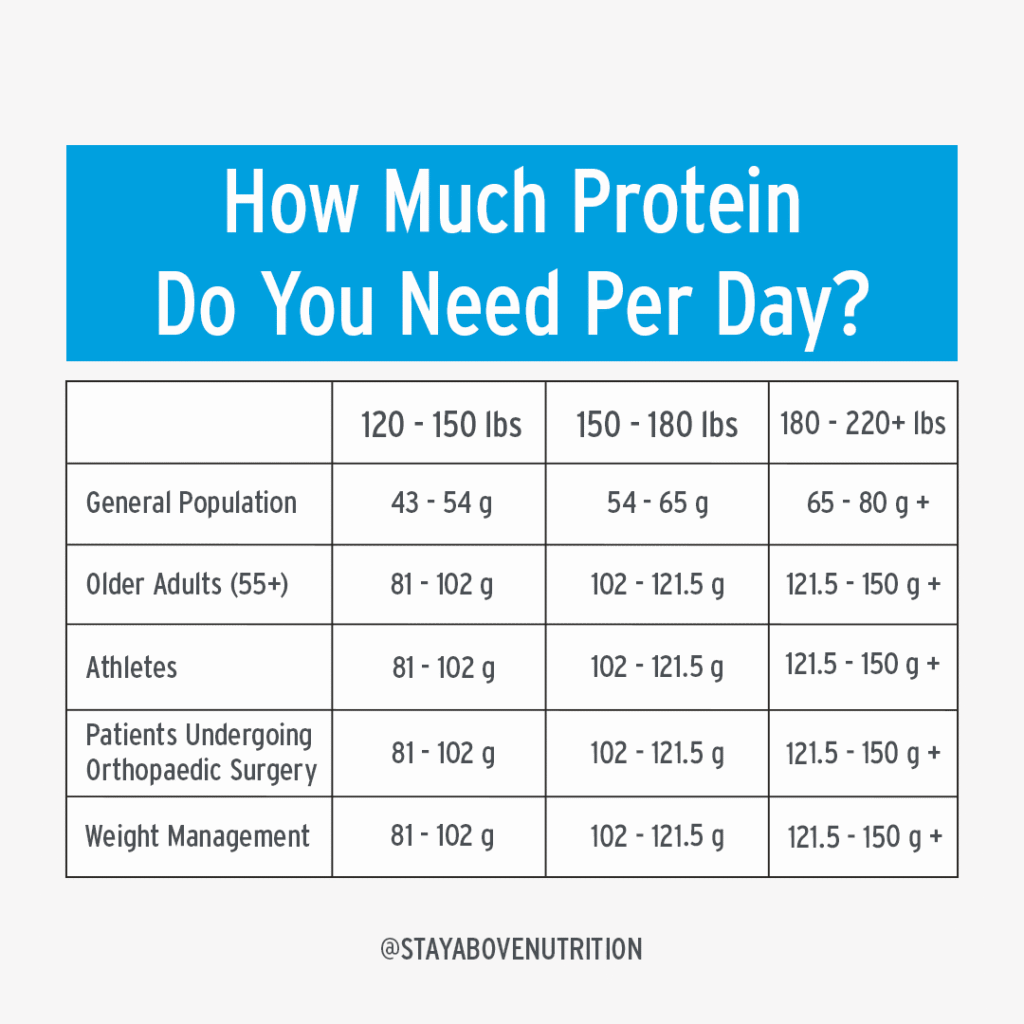

Reading time – 5 mins
As we talked about in part one, longevity isn’t just reliant on your genetics. If you want to live a long and healthy life, there are many factors within your control. Several factors such as diet, exercise, stress management, sleep, having purpose in life, family connections, and social networks are all important and play a role.
In today’s blog we’ll dive specifically into how diet and nutrition play a role in longevity.
All macros are integral for lifelong health (e.g., carbs, fats, and proteins), while some are more important than others, especially when you get older. For example, carb and fat intakes should remain largely the same throughout your life.
However, because your body is starting to break down in your 30s and 40s, there needs to be an increased supply of building blocks necessary for repair. The most important building blocks for repair and growth come from dietary proteins.
If there is one thing we know about nutrition, it’s that high-quality protein intake optimizes muscle health when combined with strength training. Your muscles will help you remain active for longer so you can get on the ground with your grandkids, take your dogs for long walks, and participate in any activity that brings you joy.
Your lifestyle choices, circumstances, or special conditions may further increase your body’s protein needs. Think highly active people, elite athletes, various clinical populations (orthopedic patients, burn victims, and those with genetic disease), or people undergoing significant weight loss during a short period of time.
There is a misconception that men need more protein than women. Interestingly, there is only weak scientific evidence that gender affects protein needs. This is not necessarily true and somewhat misleading since bodyweight (not biological sex) is the main determinant of a person’s protein needs.
While the average male is heavier than the average female and therefore has higher protein needs, some females have higher protein needs than males because of their lifestyle, circumstances, and/or special conditions!
Check if you’re getting enough protein with the chart below.

In short, yes. The quality of your protein should be the #1 consideration.
High-quality protein sources like lean meats, eggs, fish, milk, and milk protein isolates have all the building blocks necessary for muscle repair and growth. These proteins will help you build and maintain muscle mass that will improve your function, strength, quality of life, and likely longevity.
Plants also contain protein, but nutrition research continues to show that they’re harder to digest, have less protein per weight, and are of lower-quality than animal-based sources.
Although protein intake combined with strength training undoubtedly is “the king” when it comes to maintaining your muscles, omega-3 fatty acids (e.g., EPA and DHA) can improve both your muscles and mind. They’re imperative for brain development and research shows that EPA/DHA may prevent the early stages of cognitive decline. They’re also anti-inflammatory, immune-boosting, and they provide lipid-lowering benefits to improve your cholesterol levels. A recent clinical trial even showed that these omega-3 fatty acids can help maintain muscle mass.
Healthy individuals should get up to 1 gram, or more, of EPA/DHA every day. Enjoy fatty fish like mackerel, salmon, sardines, herring, and anchovies, plant-based sources like algae and seaweed, and supplement with a high-quality omega-3 oil.
Protein, fats, and carbohydrates are important for health and longevity, but so are the micronutrients you consume.
Bone deteriorates with age, but can be mitigated with weight training, supplements, and / or pharmacotherapy. Vitamin D3 and calcium are vital for bone formation and remineralization so getting enough is important. That’s why we added 1000 IU of vitamin D3 and 450 mg of calcium to each scoop of Muscle 5.
Other micronutrients to pay attention to for longevity are vitamin E, CoQ10, and alpha-lipoic acid, all found in Trim 7. These micronutrients are naturally occurring antioxidants that effectively scavenge free radicals to protect against DNA damage. This can protect against mitochondrial dysfunction, oxidative stress, and inflammation, which are the main causes of the biological aging process.
Supplementing is always a convenient way to optimize your nutrition. Supplements can improve health, performance, and recovery, and compliment your overall lifestyle.
The best supplements are those that meet the Health Canada guidelines, contain safe and effective dosages, and have scientific support from clinical trials. You can check these criteria by looking for a supplement’s NPN number, reading the nutrition label and list of ingredients, and searching online for study results.
For optimal aging, look for supplements that protect against muscle and bone loss, metabolic disease, and the causes of the biological aging process (e.g., mitochondrial dysfunction, oxidative stress, and inflammation).
To learn more about how to eat for longevity, check out this blog post.
If you are not satisfied with your purchase, please contact us at info@stayabovenutrition.ca. We will endeavour to improve your experience with our products.
Check out our FAQ for more information.
We currently ship our products anywhere within Canada. Purchases are typically processed and shipped within 48 hours. Depending on your location, items will arrive within 2-5 business days.
Check out our FAQ for more information.